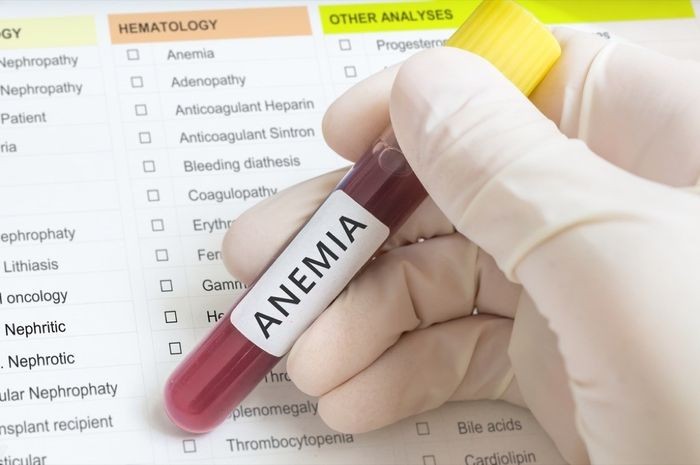10 Incredible Vitamin C Benefits For Your Health, According to Doctors

Many people reach for vitamin C (also known as ascorbic acid) to boost their immune systems in the winter—and experts say that upping your intake to meet the recommended amounts could very well offer protection against the common cold or flu. However, that’s just the tip of the iceberg when it comes to vitamin C benefits. We checked in with doctors, and their answers may surprise you. These are the top 10 most incredible ways vitamin C can better your health.
RELATED: 21 Surprising Signs You Have a Vitamin Deficiency.
1
Vitamin C can improve your skin.

Both dietary and topical Vitamin C serums are important for your skin health.
“Vitamin C is crucial for the skin’s defense system, being actively transported there to serve as an antioxidant and bolster the skin’s protective barriers,” says Pamela Peeke, MD, a nationally renowned physician working with Solaray.
She adds that vitamin C can speed up the wound-healing process. In fact, one study on the role of vitamin C in dermatological health says that “ascorbic acid is involved in all phases of wound healing.” During the inflammatory phase, it is required for normal cell death and clearance.
Next, vitamin C contributes to the “synthesis, maturation, secretion, and degradation of collagen.” Therefore, having a vitamin C deficiency can cause poor collagen production and increase scar formation, the researchers write.
2
Vitamin C could prevent osteoarthritis.

There’s another way Vitamin C can impact your health by affecting your body’s production of collagen. Charles K. Sonaliya, MD, a primary care physician with Inspira Health, this is a key component of maintaining healthy cartilage.
“In osteoarthritis (OA), the cartilage becomes damaged, leading to increased pressure on the bones and joints,” he explains. “Antioxidants, such as vitamin C, may help reduce the damage caused by free radicals.”
“However, there is currently no evidence that taking vitamin C supplements can effectively treat or prevent OA. While some promising results have been observed in animal studies, further research in humans is needed to confirm these findings,” he points out.
RELATED: 5 Surprising Benefits of Taking Vitamin B-12 Every Day.
3
Vitamin C could lower your heart disease risk.

Getting adequate levels of vitamin C is also a helpful way to lower your heart disease risk. In particular, some studies suggest that it may protect against a buildup of fatty deposits in the artery walls, a condition known as atherosclerosis, and protect against arterial damage.
“Numerous researchers have conducted clinical studies on the effects of vitamin C on arterial health, particularly in individuals with high cholesterol levels,” says Sonaliya. “High cholesterol can increase the risk of heart attacks, even in otherwise healthy individuals. These studies indicate that people with low levels of vitamin C are at a greater risk for heart attacks, strokes, and peripheral vascular disease.”
4
Vitamin C may cut your risk of hypertension.

Having high blood pressure can worsen your heart health by increasing your risk of heart attack, stroke, and heart failure, but it’s also known to damage the brain, kidneys, and other vital organs. That’s all the more reason to keep your vitamin C levels within the target range.
“Vitamin C is often described as a ‘cleaner’ for your arteries, as it helps remove accumulated cholesterol that can lead to blockages in blood vessels and contribute to high blood pressure,” Sonaliya says.
He notes that the DASH diet, an eating plan designed to lower blood pressure, “encourages the consumption of a variety of fruits and vegetables that are rich in antioxidants, including vitamin C.”
RELATED: Do You Actually Need a Vitamin D Supplement After Summer? Here’s What Experts Say.
5
Vitamin C can improve respiratory problems.

One of vitamin C’s biggest claims to fame is that it could help people fend off symptoms of upper respiratory infections or shorten their duration.
“Some researchers have also found that administering vitamins as a preventive measure at the appropriate time can be beneficial,” says Sonaliya.
However, fewer people realize that vitamin C might also be beneficial for chronic respiratory conditions such as asthma and Chronic Obstructive Pulmonary Disease (COPD).
“Oral vitamin C has been shown to prevent the accumulation of inflammatory cells in bronchoalveolar lavage fluid (BALF) and increase levels of cyclic guanosine monophosphate (cGMP), which is a key messenger in airway smooth muscle cells,” Sonaliya explains. “This suggests that vitamin C can help relax the airways, potentially reducing asthma symptoms” and protecting against COPD.
6
Vitamin C can prevent oxidative stress.

Vitamin C’s antioxidant effects are another great reason to up your intake.
“Vitamin C is a vital antioxidant that helps protect the body. It primarily aids in preventing diseases such as cancer, heart disease, arthritis, and lung disease,” Sonaliya says.
Peeke explains that increasing vitamin C intake can boost blood antioxidant levels by as much as 30 percent. This can, in turn, offer these benefits by safeguarding cells from damaging molecules known as free radicals, which lead to oxidative stress, a condition associated with many chronic diseases.
“This includes helping maintain the integrity of immune cells, ensuring they function efficiently. It also works synergistically with other antioxidants, such as Vitamin E, by regenerating their active forms, thus boosting the body’s overall antioxidant capacity,” she says.
RELATED: 7 Surprising Benefits of Taking Magnesium Every Day.
7
Vitamin C can enhance iron absorption.

Shutterstock
Working more vitamin C into your diet could help you increase your levels of another important nutrient: Iron.
Though iron plays several crucial roles in the body, Peeke notes that it is especially vital for the production of red blood cells and the transport of oxygen throughout the body.
She further explains that vitamin C helps to convert non-heme iron, which is less bioavailable, into a more soluble form that is easier for the body to absorb.
“It also counteracts inhibitors, like grains and legumes or tea and coffee, to iron absorption. This ensures that more iron is absorbed from your diet… In fact, just taking 100 mg of vitamin C can enhance iron absorption by up to 67 percent. As a result, vitamin C may help lower the risk of anemia in individuals who are prone to iron deficiency,” Peeke says.
8
Vitamin C may boost the effects of cancer treatments.

Consuming more vitamin C will not prevent or cure cancer on its own, but emerging research suggests that taking high doses of vitamin C could help enhance other forms of treatment, such as chemotherapy or radiation, and improve cancer patients’ quality of life.
“Currently, at least six clinical trials are being conducted to explore the effects of high doses of vitamin C on various types of cancer,” says Sonaliya. “Researchers are optimistic about the potential benefits of vitamin C in cell repair. They believe that during chemotherapy, patients can experience the dual benefits of repairing damaged cells and utilizing the ability of vitamin C to effectively kill cancer cells.”
RELATED: Research Reveals the No. 1 Supplement to Take If You Get Leg Cramps.
9
Vitamin C can enhance your immune system.

You probably already know that vitamin C can help fend off illness, but do you know why?
“Vitamin C helps strengthen the immune system by supporting the production of white blood cells known as lymphocytes and phagocytes, types of white blood cells that play a key role in defending the body against infections,” explains Peeke. “Vitamin C supports the proper functioning of these cells while also shielding them from damage caused by harmful molecules like free radicals.”
10
Vitamin C offers enhanced nutrition.

Another crucial benefit of getting enough vitamin C is simply that it contributes to your overall nutritional needs. While you can get vitamin C from your diet, you might not be getting enough of it that way.
According to Mayo Clinic, the recommended daily amount (RDA) for vitamin C is 75 mg per day for non-pregnant women, 120 mg per day for pregnant women, and 90 mg per day for men. The upper limit for all adults is 2,000 mg a day.
Though supplementation can offer a targeted way to increase your levels if you’re struggling to get enough through your diet, it’s always a good idea to check with your doctor before you begin taking any vitamins or other supplements.
Medical experts say you should be able to get all of the ascorbic acid your body needs through fresh fruits and vegetables, including citrus fruits, tomatoes, potatoes, cauliflower, broccoli, berries, and leafy green vegetables.